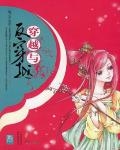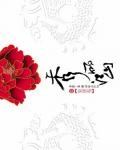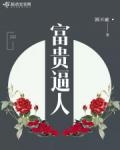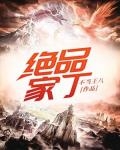Volume 1 Jiangdong Fengyun Chapter 92: "Premium" Acquisition
Lu Kang was relieved when he saw Lu Su's official purchase list.
The things that Lu Su wanted the government to buy were nothing more than three things: cattle, horses, and grain.
The main grains are millet, barley, corn, sorghum, and rice, which was still a specialty of Jiangdong at that time. Another common plant is Liang rice, but Liang rice is a relatively high-quality grain. Only some wealthy families or in good years will pay attention to eating it, and the price is also relatively high.
According to the prices a few years ago, Liang rice cost about 400 coins per stone, the others were 200 to 300 coins, and fermented black beans were 500 coins. The price of grain has skyrocketed in recent years. Even in Jiangdong, the price has increased by 50%, and in the Central Plains it has even doubled!
On the contrary, land was very cheap at that time. Ordinary farmland cost only one thousand or at most three to five thousand coins per mu, while fertile land cost ten thousand coins.
However, whether it is a family of five in the Central Plains or a family of six or seven in Jiangdong, they can only cultivate a hundred acres of land. Moreover, the current farming methods are still very rough. The yield per mu of ordinary medium-sized land is only about one stone - that is, 120 kilograms in the Han Dynasty and 60 to 70 kilograms in later generations.
The purchase price of the grain offered by Lu Su was three hundred coins.
What made Lu Kang feel relieved was that the purchase price of buffalo and good horses was 150,000 coins and 2 million !
After Bai Tu arrived in Jiangdong, Lu Bu wanted to expand his cavalry, but after inquiring about the price of horses, he basically gave up the idea.
A "good horse" that can be trained to have strong war horse power only costs a few thousand coins in Bingzhou and Liangzhou, and an ordinary high-quality horse only costs ten thousand coins.
However, once they arrived in the Central Plains, the price of horses immediately skyrocketed . Generally, when the imperial court needed more troops, such as during the reign of Emperor Wu of Han, a good horse would cost more than 50,000 coins, and under normal circumstances, it would cost 20,000 to 30,000 coins.
However, during the reign of Emperor Ling, because "the wealthy and powerful" - that is, the aristocratic families monopolized the horse trading, the price of horses soared to the sky, reaching a whopping two million coins per horse!
Until recent years, these noble families dared to treat the Han Dynasty as a fool, but did not dare to treat the various princes as fools, which caused the price of horses to fall. However, even so, the price of horses in the Central Plains was more than 100,000 coins, and in Jiangdong it was 300,000 to 500,000 coins...
In other words, for the same cavalry training, the cost of horses in northern border states such as You, Bing, and Liang is only 10,000, while it will be ten times more in the Central Plains and three to five times more in the south!
Moreover, when training war horses, the most important factors are weight and explosive power. The Jiangdong horse, which is a cross between the Dian horse and the Central Plains horse, is far inferior to the grassland horse and is better at carrying weight and endurance.
This is also the reason why Yuan Shao, who later controlled Hebei, was rich and powerful in terms of cavalry, while even Liu Biao, who was extremely wealthy in the south, did not have many cavalry.
As for the price of oxen, it is similar to that of horses in the Central Plains, also about 100,000 coins.
But that refers to "plowing oxen"!
The buffaloes in Jiangdong are classified as "beef cattle" and their prices are based on meat, which is equivalent to dead oxen.
For a long time, the people of the Han Dynasty accepted the exchange rate, which was ten catties of meat for one stone of rice. The "catty" in the Han Dynasty was much smaller than that in later generations, almost half. A buffalo could produce a thousand catties of meat, and the market price was only 10,000 or 20,000 coins...
And now Bai Tu is willing to use the price of 120,000 oxen to purchase buffaloes, and use the price of 2 million coins, which is a price that is not affordable for the rich and powerful, to purchase horses. Obviously, the so-called fine of 200,000 coins is just a lot of noise without any result, and it is probably intended to warn the major aristocratic families - this is what Lu Kang thought at this time.
"Mr. Lu, I think it's not that easy for each family to come up with cash. Why don't you give my Ministry of Civil Affairs a favor and use cash to settle the accounts? Every hundred households need to pay a hundred oxen, a good horse, and ten thousand shi of grain. How do you think ?" Lu Su said.
Just now, Lu Kang was still thinking that although using "oxen" to pay off debts was the most cost-effective, in order to ease the relationship between the two sides, he was still prepared to urge everyone to hand over some food and horses.
This can be regarded as a gesture of goodwill from the noble families to Bai Tu.
Now that Lu Su has proposed the ratio, Lu Kang has no intention of objecting.
Instead, Bai Tu asked another question: "Do each family have so much meat... ahem, so many buffaloes and grain?"
"If we swap some of them, we can still get some." Lu Kang said.
In fact, Bai Tu had already found out that the Xu family in Wujun was the one that raised the most water buffaloes in Jiangdong!
After all, when it comes to family wealth, the most basic thing is grain, and the best is salt and iron. Raising cattle is considered a second-rate business that the four Jiangdong families look down upon...
This time, each family is going to purchase a large number of buffaloes, and the Xu family will be able to make a lot of money. Bai Tu estimates that Xu Gong will be happy for two or three months.
The idea of asking for a huge amount of money first and then asking them to pay with cattle, horses and food was proposed by Lu Su. After Bai Tu put him in charge of the Ministry of Civil Affairs, collecting strategic materials was also his responsibility.
Ling Baitu made a "no-cost deal" and saved the money he would have spent on purchasing buffaloes and grain.
At the same time, "on the surface" it avoided the disgust of the Jiangdong family after Bai Tu spread the nose ring technique - I, Bai Tu, did not take advantage of you, I bought it at the price of a working ox!
Of course, it was only on the surface, unable to express dissatisfaction openly. In fact, this move still tricked the Jiangdong noble families, but Bai Tu really needed these cows...
With these 50,000 cows, most of the buffaloes in Jiangdong are under the name of the provincial governor's office. Bai Tu can at least guarantee that there is one cow available for every ten households - Bai Tu can lend them to farmers for free and collect more grain taxes afterwards, but the aristocratic families will not do that.
Especially after knowing that the largest cattle owner was the Xu family, Bai Tu felt even less guilty.
Although the additional 500 good horses cannot expand the size of the cavalry, they are enough to serve as a supplementary source of horsepower for the existing cavalry.
Five million shi of grain was no small amount - decades later, when Deng Ai was farming in Huainan, he could only save five million shi of grain a year, and it took six or seven years to save thirty million shi!
However, Bai Tu believed that the Jiangdong wealthy families could raise the money. After all, even Lu Su, who was not too rich and was usually generous and did not hoard grain, could give out several thousand stones to others.
After Lu Kang and Lu Su discussed the specific details, such as the calf, two-for-one, three-for-one slow horses and so on, they also hinted to Bai Tu that he could talk to the major families, but this amount of money was not just a "fine" but also the support and goodwill of the major families to Bai Tu.
After all, Bai Tu has already demonstrated his strength and potential, and... there is also the effect of "Grandmaster of Enlightenment"!
"My lord, my Yu family is willing to offer an additional 100 fine horses and 10,000 pieces of silk to help your great cause." Yu Fan took the initiative to say at this time.
One piece of silk was roughly equivalent to five stone of grain, but ordinary people usually wore hemp, which was only one-third of the price of silk.
The Yu family was a large horse breeder - in Jiangdong, being able to produce a hundred horses was already considered a large horse breeder, which was incomparable to the north.
Lu Kang was even more surprised when he heard this. What kind of medicine had Yu Fan been fed...
At the same time, he also understood that Yu Fan was intentionally expressing his loyalty to Bai Tu in front of him, and it was also an indirect warning to other families that if they wanted to buy his horses, even if it didn't cost two million dollars, it would still be more expensive than usual. If they were not satisfied, they could go and argue with Bai Tu!
Lu Kang guessed that Bai Tu and Lu Su should have other things to talk about. Seeing that he had nothing to do, he took the initiative to say goodbye. Yu Fan also left with Lu Kang. Later, he would also assist Lu Kang in completing the household registration sorting of the Ministry of Households.
Lu Kang had anticipated before that the Ministry of Revenue would definitely send Bai Tu's confidant to be his deputy.
But I could never guess that this person would be Yu Fan, who came from a noble family!






